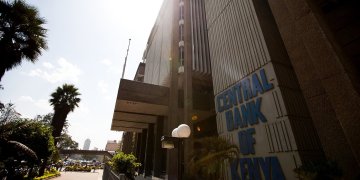A number of Kenyan banks are still grappling with how to implement several International Financial Reporting Standard (IFRS) standards, especially (IFRS) 9 on Financial Instruments, which came into effect on January 1st, 2018.
IFRS 9 introduced a new method of determining provisions for expected losses on loans extended by lending institutions. Banks are now required to recognize expected credit losses at all times, and to update the amount of expected credit losses recognized at each reporting date to reflect changes in the credit risk of financial instruments.
Among these challenges described as prevalent include lack of adequate historical data for assessment and re-modeling of the IFRS 9 assumptions and parameters including Probability of default (PD), Loss Given Default (LGD).
- Some banks faced challenges due to a lack of automation of the IFRS 9 processes and reporting.
- The survey found that most banks have adopted a tight credit risk appraisal, ensuring that facilities are well- secured and that alternative sources of repayment are available.
- Banks are currently building on available historical loans and advances data to be incorporated and enhance the IFRS 9 assumptions and parameters including Probability of default (PD) and Loss Give Default (LGD).
Some lenders are moving towards automating the entire IFRS 9 processes and reporting in the next five years. Currently, a robust maker checker mechanism is in place in addition to quality review process.
Banks are also considering short-term leases
Banks are also experiencing hiccups in the implementation of the International Financial Reporting Standard (IFRS) 16 on Leases, which came into effect on January 1, 2019 and replaced International Accounting Standard (IAS) 17 on Leases.
- Under the previous standard, IAS 17, a lessee was not obligated to report assets and liabilities from operating leases on their balance sheet but instead report the leases as off-balance sheet items.
- IFRS 16 changed this by requiring lessees to recognize operating leases’ right of use (ROU) assets and lease liabilities on the balance sheet.
- IFRS 16 aims to improve the quality of financial reporting for companies with material off-balance sheet leases.
The CBK Commercial Banks’ Credit Officer Survey June 2023 found that during the quarter ended June 30, 2023, 97% of the banks had assessed the impact of IFRS 16 on their financial performance and position.
Most of the respondents indicated that the major challenges they are facing include:
- Review and re-modeling of the IFRS 16 impact upon expiry and renewal of lease contracts. Banks’ lease contracts run over different periods and the expiry and renewal of leases means they have to re-assess the impact at every periodic change in contractual obligations.
- Automation of the IFRS 16 Lease accounting is yet to be done.
- Some Kenyan banks currently run an excel based model, which might be subject to human error. However, they have in place an effective maker checker control system to mitigate this in the short term as they consider automation.
Banks are considering renegotiation of lease contracts to a shorter term to reduce the impact of the adoption of new lease and renewed leases to their books. A shorter-term lease means the balance sheet impact is smaller as compared to a long-term lease.
ALSO READ: Kenyan Banks Introduce Climate-Related Financial Disclosures Template to Boost Sustainability




